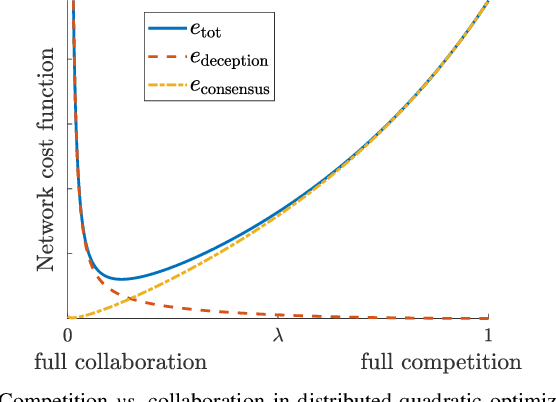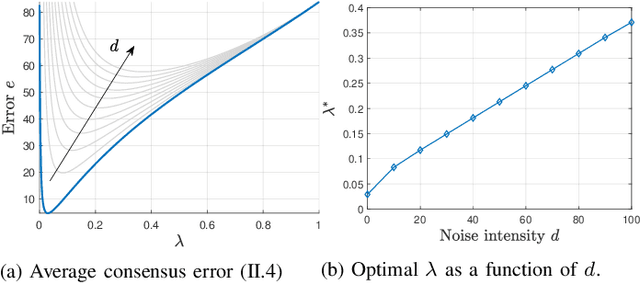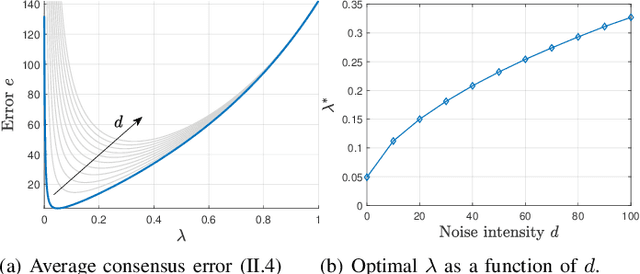Giacomo Como
Can Competition Outperform Collaboration? The Role of Malicious Agents
Jul 04, 2022



Abstract:We investigate a novel approach to resilient distributed optimization with quadratic costs in a Networked Control System prone to exogenous attacks that make agents misbehave. In contrast with commonly adopted filtering strategies, we draw inspiration from a game-theoretic formulation of the consensus problem and argue that adding competition to the mix can improve resilience in the presence of malicious agents. Our intuition is corroborated by analytical and numerical results showing that (i) our strategy reveals a nontrivial performance trade-off between full collaboration and full competition, and (ii) such competitionbased approach can outperform state-of-the-art algorithms based on Mean Subsequence Reduced. Finally, we study impact of communication topology and connectivity on performance, pointing out insights to robust network design.
Data Augmentation of IMU Signals and Evaluation via a Semi-Supervised Classification of Driving Behavior
Jun 16, 2020



Abstract:Over the past years, interest in classifying drivers' behavior from data has surged. Such interest is particularly relevant for car insurance companies who, due to privacy constraints, often only have access to data from Inertial Measurement Units (IMU) or similar. In this paper, we present a semi-supervised learning solution to classify portions of trips according to whether drivers are driving aggressively or normally based on such IMU data. Since the amount of labeled IMU data is limited and costly to generate, we utilize Recurrent Conditional Generative Adversarial Networks (RCGAN) to generate more labeled data. Our results show that, by utilizing RCGAN-generated labeled data, the classification of the drivers is improved in 79% of the cases, compared to when the drivers are classified with no generated data.
 Add to Chrome
Add to Chrome Add to Firefox
Add to Firefox Add to Edge
Add to Edge